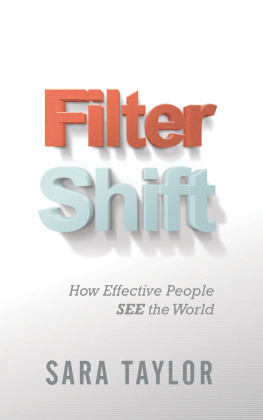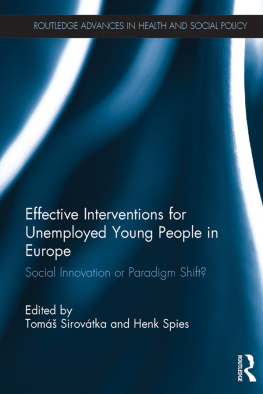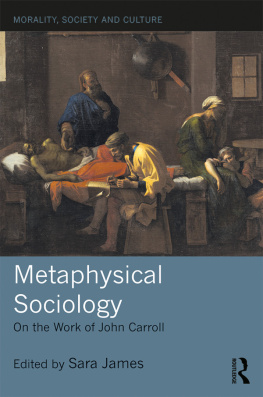Sara Taylor - Filter Shift: How Effective People See the World
Here you can read online Sara Taylor - Filter Shift: How Effective People See the World full text of the book (entire story) in english for free. Download pdf and epub, get meaning, cover and reviews about this ebook. year: 2017, publisher: Morgan James Publishing, genre: Home and family. Description of the work, (preface) as well as reviews are available. Best literature library LitArk.com created for fans of good reading and offers a wide selection of genres:
Romance novel
Science fiction
Adventure
Detective
Science
History
Home and family
Prose
Art
Politics
Computer
Non-fiction
Religion
Business
Children
Humor
Choose a favorite category and find really read worthwhile books. Enjoy immersion in the world of imagination, feel the emotions of the characters or learn something new for yourself, make an fascinating discovery.
- Book:Filter Shift: How Effective People See the World
- Author:
- Publisher:Morgan James Publishing
- Genre:
- Year:2017
- Rating:3 / 5
- Favourites:Add to favourites
- Your mark:
- 60
- 1
- 2
- 3
- 4
- 5
Filter Shift: How Effective People See the World: summary, description and annotation
We offer to read an annotation, description, summary or preface (depends on what the author of the book "Filter Shift: How Effective People See the World" wrote himself). If you haven't found the necessary information about the book — write in the comments, we will try to find it.
Filter Shift: How Effective People See the World — read online for free the complete book (whole text) full work
Below is the text of the book, divided by pages. System saving the place of the last page read, allows you to conveniently read the book "Filter Shift: How Effective People See the World" online for free, without having to search again every time where you left off. Put a bookmark, and you can go to the page where you finished reading at any time.
Font size:
Interval:
Bookmark:
Filter Shift
Filter
Shift
How Effective People
SEE the World
SARA TAYLOR

NEW YORK
NASHVILLEMELBOURNE
I have tried to recreate events, locales and conversations from my memories of them. In order to maintain the anonymity of the persons involved, in some instances I have changed the names of individuals and places, and certain identifying characteristics and details such as physical properties, occupations and places of residence. Some of the incidents and events described are composites of various elements from actual incidents and events.
Springing up like a mirage from the sand, the ornate palace was an eerie site for Bill Richardson. After traveling for days across a barren desert, he now entered the opulent domain of a dictator. Its expansive yet empty rooms exuded power with their shiny marble floors, thick gold-accented columns, and canopies of colorful baroque ceilings. It was the palace of Saddam Husseinlavish even by dictator standards. Richardson and his team of three other US emissaries were ushered in past a display of military sentries and led to the meeting room lined with Husseins revolutionary guards in crisp, bright uniforms, gripping their shiny gold swords.
This meeting was the result of three months of stressful negotiations with the Iraqis, and intense planning and preparation by the US team. Richardson, among other things, was the former governor of New Mexico and former ambassador to the UN. It was during this, one of the earliest skirmishes with Iraq, that President Clinton had sent him to negotiate with Hussein.
Yet, only minutes after arriving, Hussein abruptly left and the meeting was terminated. Richardson sat stunned. As he heard Hussein slam the door behind him, he could feel the table still vibrating from the pounding of the dictators fist. Husseins chair on the other side swiveled in slow circles from the sudden abandonment of its owner.
Richardson was both baffled by what had gone wrong and worried for his safety, as eight towering Republican Guards surrounded him. It suddenly didnt matter that he and his team had prepared for months. It didnt matter that he had positive intent, or that he sincerely wanted to connect with Hussein to negotiate. What did matter was that he had somehow offended Hussein.
How did months of effort and hard work come to nothing after only a few short moments? How could such an accomplished leader as Bill Richardson so visibly and suddenly fail? Because he had blind spots. Because he was unable to Filter Shift : to see his own filters, understand the filters of Saddam Hussein, and shift his behavior when the situation called for it.
Filter Shift
How Effective People SEE the World
2017 SARA TAYLOR
All rights reserved. No portion of this book may be reproduced, stored in a retrieval system, or transmitted in any form or by any meanselectronic, mechanical, photocopy, recording, scanning, or otherexcept for brief quotations in critical reviews or articles, without the prior written permission of the publisher.
Published in New York, New York, by Morgan James Publishing. Morgan James and The Entrepreneurial Publisher are trademarks of Morgan James, LLC.
www.MorganJamesPublishing.com
The Morgan James Speakers Group can bring authors to your live event. For more information or to book an event visit The Morgan James Speakers Group at www.TheMorganJamesSpeakersGroup.com.
 | ISBN 978-1-63047-978-7 paperback Cover Design by: Interior Design by: |

In an effort to support local communities, raise awareness and funds, Morgan James Publishing donates a percentage of all book sales for the life of each book to Habitat for Humanity Peninsula and Greater Williamsburg.
Get involved today! Visit
www.MorganJamesBuilds.com
S o what exactly happened to end the meeting between Saddam Hussein and Bill Richardson before it even began? Unconsciously filtering the situation to believe that he could be informal, Richardson settled in when he sat down for the meeting. Angled in his chair, leaning with one arm over the back, he crossed his ankle over his knee, his flexed foot pointing the bottom of his shoe toward Hussein. That was the moment Hussein pounded the table and terminated the meeting, leaving the US team baffled.
What Richardson didnt know was that, in many Arab countries, showing the sole of your shoe is a blatant symbol of disrespect. The equivalent of this act in the United States would be an Iraqi emissary meeting with President Clinton, walking into the oval office, calmly sitting down, and flipping Clinton the bird, both middle fingers proudly raised. Just look at pictures of the Arab Spring uprisings of protests that began in 2010 throughout the League of Arab States and the surrounding areas. Image after image shows protestors in the streets screaming their disgust and waving the soles of their shoes at placards of their rulers.
By crossing his legs, he unwittingly revealed the sole of his shoe to Husseina gesture so obvious to those Richardson came to meet with, yet missed by him in his inability to Filter Shift.
Fortunately for Richardson, his inability to Filter Shift wasnt fatal. It caused delays and unnecessary tension, but finally, after stressful re-negotiations, the meeting was resumed and he left having accomplished his objectives, though still unclear as to how he initially sent the meeting off in the wrong direction.
Richardson isnt alone. the vast majority of us arent cognizant of how our filters control our thoughts, behaviors, and decisions. In fact, the vast majority of us arent cognizant of how our filters control our thoughts, behaviors, and decisions. Unlike Richardson, our meetings are with coworkers, not dictators. Yet very much like Richardson, in those meetings our filters can misguide us.
At times, as with Richardson, our filters lead to failure for us. There are the more obvious failures: the leader whose speech to the company nosedives, the extensive marketing campaign that fails, and the merger that flops. Each failure is preceded by extensive preparation resulting in a naive confidence in the ability to perform, and followed by confusion at the unexplained source of the failure.
In these cases, the results of automatic filtering are obvious. More frequently, however, our individual failures or mishaps caused by an inability to Filter Shift arent on such a grand scale and are therefore much less obvious. They happen on a day-by-day, moment-by-moment basis, and were blind to the full spectrum of perception and belief at play, oblivious to our ineffectiveness. We leave a conversation or situation and we think weve communicated successfully, yet we havent; we think were effective, yet we arent. We have significant blind spots that leave us drastically overestimating our effectiveness.
To complicate things, when it comes to difference , we typically see only a very narrow spectrum of variables. Things that are easier to recognize like gender, race, and language, we see easily enough; however, while those differences are frequently important, theyre only part of a much broader spectrum of differences that tend to be outside of our awareness. When misunderstandings or conflicts arise, more often than not they are caused by the differences that we dont seedifferences obscured by our automatic filters.
Next pageFont size:
Interval:
Bookmark:
Similar books «Filter Shift: How Effective People See the World»
Look at similar books to Filter Shift: How Effective People See the World. We have selected literature similar in name and meaning in the hope of providing readers with more options to find new, interesting, not yet read works.
Discussion, reviews of the book Filter Shift: How Effective People See the World and just readers' own opinions. Leave your comments, write what you think about the work, its meaning or the main characters. Specify what exactly you liked and what you didn't like, and why you think so.













